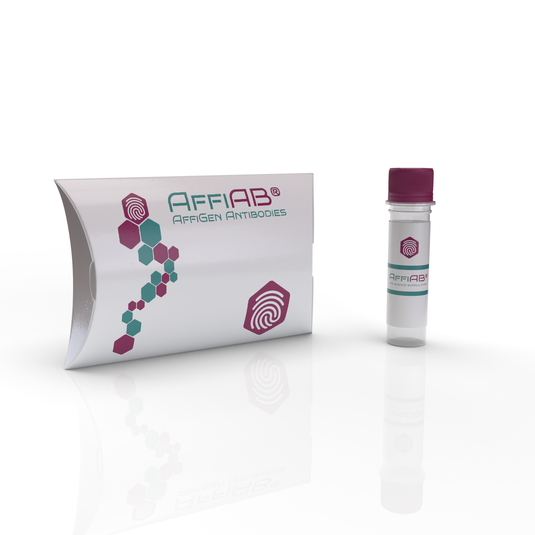AffiAB® Goat Anti-CX43 Polyclonal IgG Antibody
AffiAB® Goat Anti-CX43 Polyclonal IgG Antibody is a powerful reagent for use in Western Blotting and Immunohistochemistry (IHC) applications. This antibody is highly specific and is capable of recognizing CX43 in various samples. It is also highly sensitive and provides superior performance compared to conventional methods.
Host: Goat
Species: Human
Description:
AffiAB® Goat Anti-CX43 Polyclonal IgG Antibody is a type of antibody that specifically binds to Connexin 43 (CX43), which is a protein that forms gap junctions in cells. Gap junctions are channels that allow for the transfer of small molecules and ions between adjacent cells, and they play a critical role in cell communication and coordination. The AffiAB® Goat Anti-CX43 Polyclonal IgG Antibody can be used in a variety of applications, such as immunohistochemistry, western blotting, and immunoprecipitation, to detect the presence and localization of CX43 in different tissues and cell types.
Gene Identifier/Accession Number: ENSG00000152661
Form: N/A
Concentration: 4 mg/mL
Type: Primary
Clonality: Polyclonal
Isotype: IgG
Conjugation: Unconjugated
Application: Western Blot, Immunofluorescence, Immunohistochemistry PARAFFIN PROTOCOL , Immunohistochemistry FROZEN
Storage: For continuous use, store at 2-8 °C for one-two days. For extended storage, store in -20 °C freezer. Working dilution samples should be discarded if not used within 12 hours.
Special instructions: The antibody solution should be gently mixed before use.
Goat Anti-CX43 Polyclonal IgG Antibody
In the realm of cell biology and physiological research, the Goat Anti-CX43 Polyclonal IgG Antibody has emerged as a vital tool. Connexin 43 (CX43), a major protein forming gap junctions in many cell types, plays a pivotal role in cell-to-cell communication and tissue homeostasis. This antibody's ability to specifically target CX43 is critical for studies in developmental biology, cardiac function, and cancer research.
Understanding Goat Anti-CX43 Polyclonal IgG Antibody
Production and Characteristics:
The Goat Anti-CX43 Polyclonal IgG Antibody is produced by immunizing goats with a synthetic peptide of the CX43 protein. The resulting antibody recognizes multiple epitopes on CX43, ensuring high sensitivity and specificity. This polyclonal nature is particularly advantageous in detecting various forms and modifications of CX43.
Advantages of Goat-Derived Antibodies:
Goat-derived antibodies provide several benefits, including high antigen sensitivity and substantial yields. Their immune systems produce a broad and robust response, making them suitable for producing antibodies against diverse and complex proteins like CX43.
Applications in Scientific Research
1. Cardiac Research:
CX43 is crucial in heart function, where it facilitates intercellular communication in the cardiac muscle. The Goat Anti-CX43 Polyclonal IgG Antibody is used to study cardiac physiology and pathologies, such as arrhythmias and heart failure.
2. Developmental Biology:
In developmental biology, this antibody aids in understanding how gap junctions influence cell differentiation and organ development, providing insights into the fundamental processes of life.
3. Cancer Research:
The role of CX43 in cancer is a growing area of interest. This antibody is used to explore how alterations in gap junction communication contribute to cancer progression and metastasis.
4. Immunohistochemistry (IHC) and Immunocytochemistry (ICC):
In IHC and ICC, the Goat Anti-CX43 Polyclonal IgG Antibody helps visualize the expression and localization of CX43 in tissue sections and cultured cells, essential for understanding its role in various tissues and disease states.
5. Western Blotting:
The antibody is also employed in Western blotting for detecting and analyzing CX43 protein expression levels, which is crucial in studying its regulation and post-translational modifications.
Conclusion
The Goat Anti-CX43 Polyclonal IgG Antibody is an indispensable tool in the study of intercellular communication and tissue homeostasis. Its specificity to CX43 and the broad reactivity provided by its polyclonal nature make it invaluable for various applications, from basic research to understanding disease mechanisms. As research continues to unveil the complexities of gap junctions and connexins, this antibody will undoubtedly play a key role in fostering new discoveries and insights.

